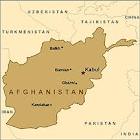
Gaza is Israel’s Munich
In September 1938, European statesmen gathered in Munich for a fateful conference. Hitler wanted to annex the Sudetenland, a German-speaking region of Czechoslovakia; Britain and France, desperate to avoid war with Nazi Germany, caved in and granted the Führer’s request. It was hoped that Hitler’s appetite for territorial expansion would be sated: Neville Chamberlain, Britain’s prime minister, proclaimed that the concession had achieved “peace for our time“. Within a year, Hitler had invaded Poland and the Second World War had begun. The policy of appeasement, it appeared, had failed and forever would fail – or so it came to be thought.
As the twentieth century evolved, ‘appeasement’ evolved into a term of abuse that would automatically discredit the granting of concessions to satisfy an opponent. What had previously referred to the pacific settlement of disputes through pragmatic negotiation, argues historian David Dilks, “came to indicate something sinister, the granting from fear or cowardice of unwarranted concessions in order to buy temporary peace at someone else’s expense”. The spectre of Munich came to hang over every international crisis: the Korea, Vietnam, Falklands and Suez wars were all justified in terms of the inevitable failure of appeasement. Most recently, the willingness of the West to allow Crimea to fall to Russia has been denounced as ‘appeasement’, and it is common to hear the crisis spoken of as ‘Obama’s Munich‘.
The 2005 Gaza Disengagement was Israel’s Munich moment: in Israeli discourse, ‘Gaza’ is to ‘unilateral withdrawal’ what ‘Munich’ is to ‘appeasement’. Israel withdrew its army and 8,000 settlers from Gaza Strip; the power vacuum was soon filled by Hamas, and this densely populated coastal strip became a launching pad for thousands of rockets against Israeli civilian areas, provoking two mini-wars.

Promise and peril of NATO’s ‘irreversible’ exit from Afghanistan
With the military campaign in Afghanistan in the middle of its eleventh year, NATO has firmly moved from what is idealistically desirable to what is realistically achievable in the war-torn country. Over a decade ago, NATO intervened in Afghanistan with post-Cold War ambition. But the experience in Afghanistan, where the battle with Taliban-led insurgents is far from over, has put many off protracted peacekeeping missions. The US, who went into Afghanistan with a neoconservative mission of turning a tribal system upside down, is finally settling for an imperfect yet “responsible end” to a prolonged, unpopular, costly and deadly war. At the recently-held summit in Chicago, NATO leaders announced an “irreversible” three-stage security transition plan. Under the plan, Afghan National Security Forces …









